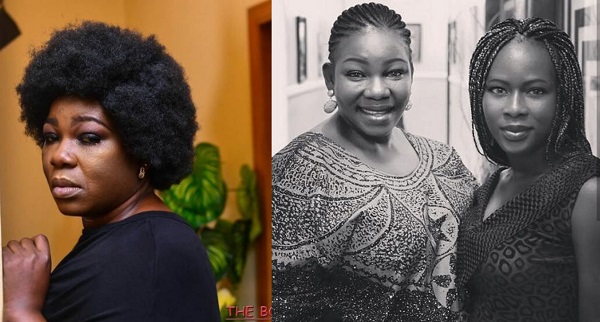
Ada Ameh and her late daughter
Nollywood actress Empress Njamah has come out to react to the latest brutal killings in Benue State.
She recently shared a throwback video of the late Ada Ameh speaking out about the bloodshed in the state, and fans have been reacting.
In the emotional clip, Ada Ameh, who died in 2022, tearfully lamented the senseless killings in Benue, asking for prayers and justice for its residents.
According to Njamah, the late movie star’s courage, empathy and voice will not be forgotten because she constantly stood up for what is right.
Empress added that she misses her best friend a lot, stressing that her memory will continue to live on in the hearts of her fans.
Her words, “KEEP RESTING IN PEACE MY DEAREST ADA 💔💔
Your strength, courage, and voice will never be forgotten. I’m still trying to process the pain of your loss, especially knowing the circumstances surrounding your passing. Your state, your people… they all deserve A PEACEFUL STATE, Continue to rest in peace, my angel,friend and sister. Your legacy lives on.
Missing you so much, 🙏💔 Every day feels emptier without you. Your memory lives on in our hearts, and I’m trying to hold on to the good times, the laughter, and the memories we shared. I wish you were here to see the impact you had on so many lives, your community,your state and beyond. Continue to watch over us and inspire us to keep pushing for a better world 🙌💕
ADA YOUR LEGACY LIVES ON
#prayforbenue
#prayforbenuestate
#benuestate”
WOW.
Nollywood is a sobriquet that originally referred to the Nigerian film industry. The origin of the term dates back to the early 2000s, traced to an article in The New York Times. Due to the history of evolving meanings and contexts, there is no clear or agreed-upon definition for the term, which has made it a subject to several controversies.
The origin of the term “Nollywood” remains unclear; Jonathan Haynes traced the earliest usage of the word to a 2002 article by Matt Steinglass in the New York Times, where it was used to describe Nigerian cinema.
Charles Igwe noted that Norimitsu Onishi also used the name in a September 2002 article he wrote for the New York Times. The term continues to be used in the media to refer to the Nigerian film industry, with its definition later assumed to be a portmanteau of the words “Nigeria” and “Hollywood”, the American major film hub.
Film-making in Nigeria is divided largely along regional, and marginally ethnic and religious lines. Thus, there are distinct film industries – each seeking to portray the concern of the particular section and ethnicity it represents. However, there is the English-language film industry which is a melting pot for filmmaking and filmmakers from most of the regional industries.
 NaijaVibe NaijaVibe | Download Latest Nigerian Music & Mp3s
NaijaVibe NaijaVibe | Download Latest Nigerian Music & Mp3s

